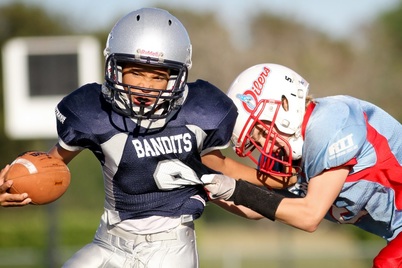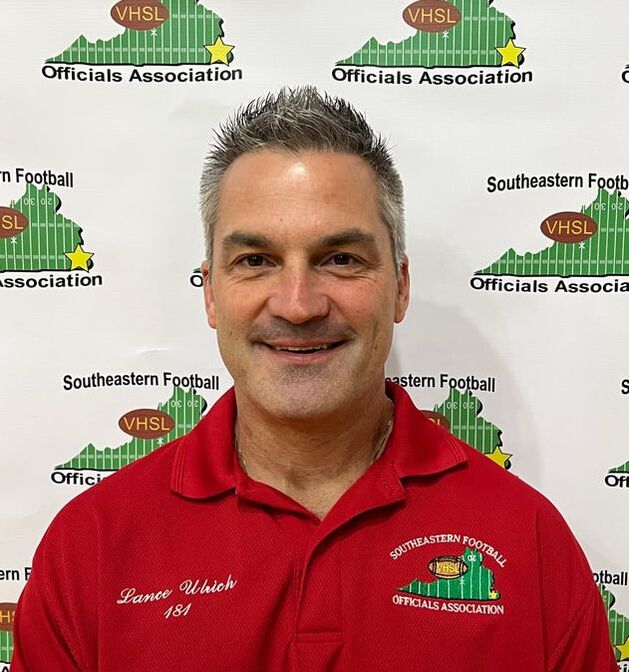 Welcome to the End Zone. What I hope will be a successful monthly blog throughout the course of the season. Perhaps, bi-monthly during the off-season. We’ll see. My goal is to discuss all things football in regards to officiating. You know, some of the things that as officials we deal with on a consistent basis--not the same old "if team A does this then team B gets this" rules kind of discussion--but the kind of things that keep us in the game. The reason we do this, and some of the things that happen along the way. That being said, enjoy this month’s blog. Any feedback is most welcome. I began officiating in Las Vegas in 2002. When I landed in Virginia in July of 2009, the SEFOA was most welcoming, and I will always be grateful for that. What’s unique to me is how similar, yet different, the road to officiating begins in both places. In Las Vegas, newer officials will cut their officiating teeth working youth football. Usually 3-4 weeks of that before getting on a high school field for any level. The reason for that is the high school association there is responsible for assigning youth football games. Personally, I’m a fan of the association making these assignments. For two reasons. The first and most important is that as a new official, there will never be a better way for you to learn how to officiate, then getting on the field for 3-5 games every Saturday. Just getting out there and getting tons of snaps--really having to figure out what you’re doing. Especially at the youth level, which less face it, is slow enough for us to digest as we are getting started. There are many opportunities for this because most youth leagues have so many games on Saturday, they are starving for officials. It’s much easier to confidently take the field for a high school game after you have spent the first half of your 1st, 2nd, or 3rd season working out the kinks on the youth field. In most cases, a youth assigner is going to pair you up with one or two savvy veterans for each game who can help you with mechanics, rules application, and most importantly, how to really start to hone your instincts. And the pace is slow enough to provide an excellent learning environment. Veterans, in most cases, are always happy to help newer officials in this regard. Especially the ones who are willing to learn and appreciate the advice they get. This is too good of a resource to pass up if your serious about becoming a good official. As you may or may not know, the SEFOA does not have the responsibility of assigning youth games, therefore it’s up to the official if they want to work youth football. While most officials will, or will at least consider, working youth football, they don’t have to. In my opinion, you’re shorting yourself if you are not availing yourself of this opportunity. So take advantage. It’s also a fantastic way to give a little something back to your community. This brings me to my second reason why working youth football is so beneficial. You will never experience football in a more chaotic environment (well, except maybe semi-pro. But that’s for another time and another blog) then you will at the youth football level. Think about it. The kids are just learning how to play the game. Not the way they learn in the park or on the street. But real organized football. How to line up, not to false start, 7 men on the line of scrimmage. I could go on and on. And!!! They are learning all this from coaches who, in most cases, are just learning how to coach the game themselves. Sure, they have fond memories of their playing days. But how many of them do you think really know the rules? Or how they're applied? "Spirit vs. intent", etc. The answer is...very few. Don’t get me wrong, there are some very good youth football coaches who know what they are doing. But the one’s that think they do as opposed to the ones that actually do are few and far between. Some of the teams will have 4-5 coaches. Have you ever heard the expression the blind leading the blind? It’s the perfect storm of chaos. And, it’s learning how to officiate at the base level. At best, you will be working 5 man mechanics. At worst, 3 man. Consider this. It’s the third game of the day. You’re in the second quarter of a lopsided game, and the losing team is already showing very little interest in anything other than not getting their butts kicked anymore. But that coach is still coaching, because he or she has to. And they’re in your ear about everything. “That’s a false start”, “he’s in the neutral zone”, “that’s holding”. I mean, this coach is killing you. Meanwhile, you’re actually, you know...trying to officiate. It’s bad enough that it probably is a false start and you’ve already called it four times and have talked to the same kid about it three times, but this coach won’t let up. Because for most of these coaches, that’s all they know how to do once the score is insurmountable. The scenario above is when you begin to realize that officiating is either for you, or it’s not. You need experiences like the one above to learn how to focus on the game. To apply the trade of officiating under tough circumstances. These games help you learn what fouls are important. To use your discretion. How to focus on what’s happening on the field when some coach is in your ear about something that happened 4 plays ago, which you already addressed by the way! And I haven’t even gotten started on the parents. You know normal everyday people. The ones who become Nick Saben on Saturday’s. They are the people standing right next to you on the side line, convinced that the only reason you’re there is to hose their team and specifically their son or daughter. Now, I’m just a guy giving his opinion, and we all know the old saying about opinions. Really what I’m hoping is that if you've read this far, you'll give youth football a chance. At least think about it. Even if the association you work for doesn’t require it. That goes for you veterans out there who are available on Saturdays as well. I would never be where I am today if it were not for a few of my Saturday mentors. To whom I will always be grateful. Like I said, comments are most welcome. And if you think you might want to do a little blogging on the site, I think that’s great. The more we communicate, the stronger the SEFOA will become. Well, that’s it. My first blog. Hope you liked it. See everyone at the next meeting. Lance
3 Comments
Rudy Rice
8/22/2016 03:26:01 pm
Wow! What a great idea "The End Zone"! I enjoyed the read and have been in all the situations that you talked about and agree that every official should experience Youth Football.
Reply
Ed Wagner
9/5/2016 09:30:02 am
Great opening story. Even after 35 years I still have fond memories of the Saturdays on a youth football field. I too, strongly encourage you to get involved with youth sports and watch these young men and women grow up and become fine athletes. Come join us on the field.
Reply
9/26/2016 09:55:44 am
Thanks for a great perspective. I played football (11 years), coached football (18 years), held the chains for football games before I became an official (18 years). I like to watch all levels of football and have since I was about 10 years old. I remember the first game I saw when I was in training to become an official, it was like seeing the game for the first time.
Reply
Leave a Reply. |
Blog AuthorLance Ulrich has been a football official since 2002, and a member of SEFOA since 2009. Archives
March 2023
Categories |

 RSS Feed
RSS Feed